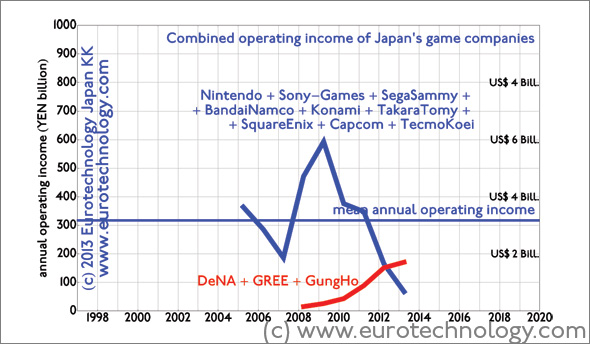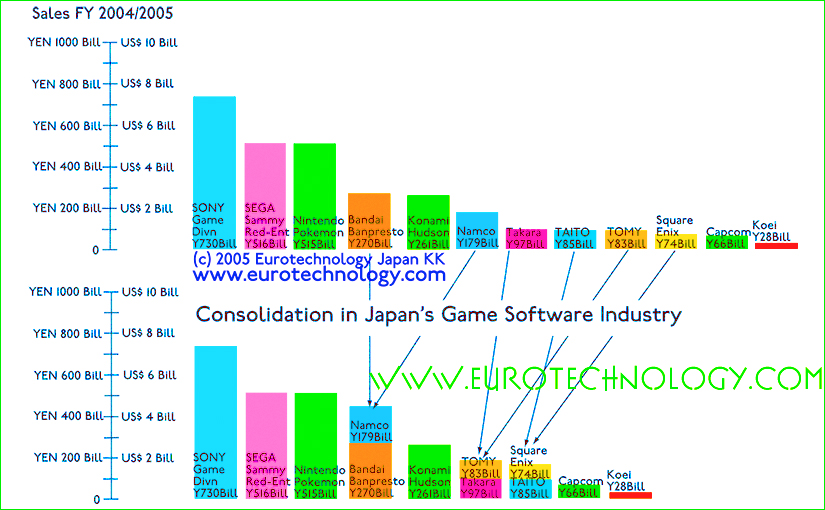Tag: TakaraTomy
-

Japan game market disruption: GungHo + DeNA + GREE overtake Japan’s game icons
Japan game market disruption: new smartphone game companies overtake Japan’s game icons like Nintendo in income [日本語版はこちらへ] Since last financial year (ended March 31, 2013), three newcomers (GungHo, DeNA, and GREE) combined achieved higher operating income and higher net income than all 9 iconic Japanese game companies (Nintendo + SONY-Games + SegaSammy + BandaiNamco +…
-

Japan game software industry consolidation
Japan’s historically grown game companies are global superpowers Shrinking traditional home video game software market and paradigm shift to online games, network games and mobile games forces consolidation by Gerhard Fasol Japan’s mobile game software companies are global superpowers. They are all historically grown and linked to other industry sectors, such as characters, arcade games,…